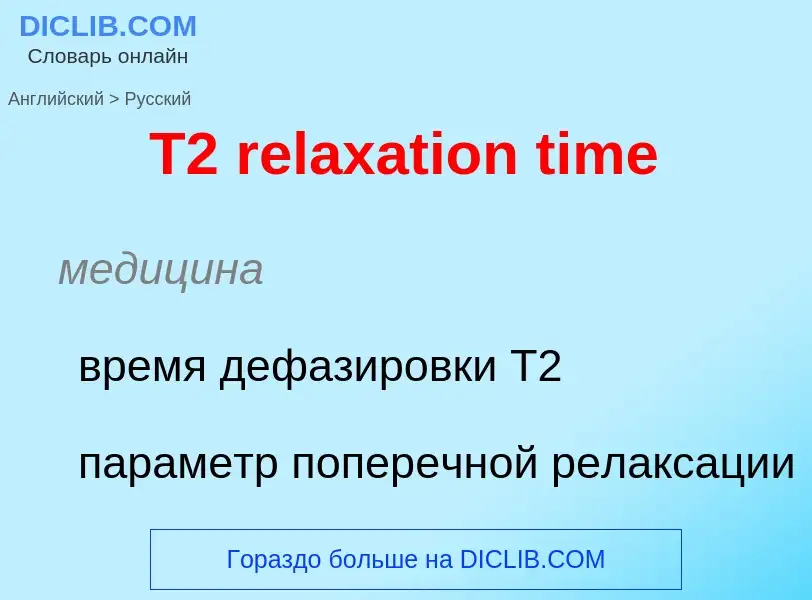Translation and analysis of words by ChatGPT artificial intelligence
On this page you can get a detailed analysis of a word or phrase, produced by the best artificial intelligence technology to date:
- how the word is used
- frequency of use
- it is used more often in oral or written speech
- word translation options
- usage examples (several phrases with translation)
- etymology
T2 relaxation time - translation to russian
медицина
время дефазировки Т2
параметр поперечной релаксации
медицина
спин-спиновая релаксация
медицина
время спин-спиновой релаксации
Wikipedia
In physics, the spin–spin relaxation is the mechanism by which Mxy, the transverse component of the magnetization vector, exponentially decays towards its equilibrium value in nuclear magnetic resonance (NMR) and magnetic resonance imaging (MRI). It is characterized by the spin–spin relaxation time, known as T2, a time constant characterizing the signal decay. It is named in contrast to T1, the spin–lattice relaxation time. It is the time it takes for the magnetic resonance signal to irreversibly decay to 37% (1/e) of its initial value after its generation by tipping the longitudinal magnetization towards the magnetic transverse plane. Hence the relation
- .
T2 relaxation generally proceeds more rapidly than T1 recovery, and different samples and different biological tissues have different T2. For example, fluids have the longest T2 (on the order of seconds for protons), and water based tissues are in the 40–200 ms range, while fat based tissues are in the 10–100 ms range. Amorphous solids have T2 in the range of milliseconds, while the transverse magnetization of crystalline samples decays in around 1/20 ms.



